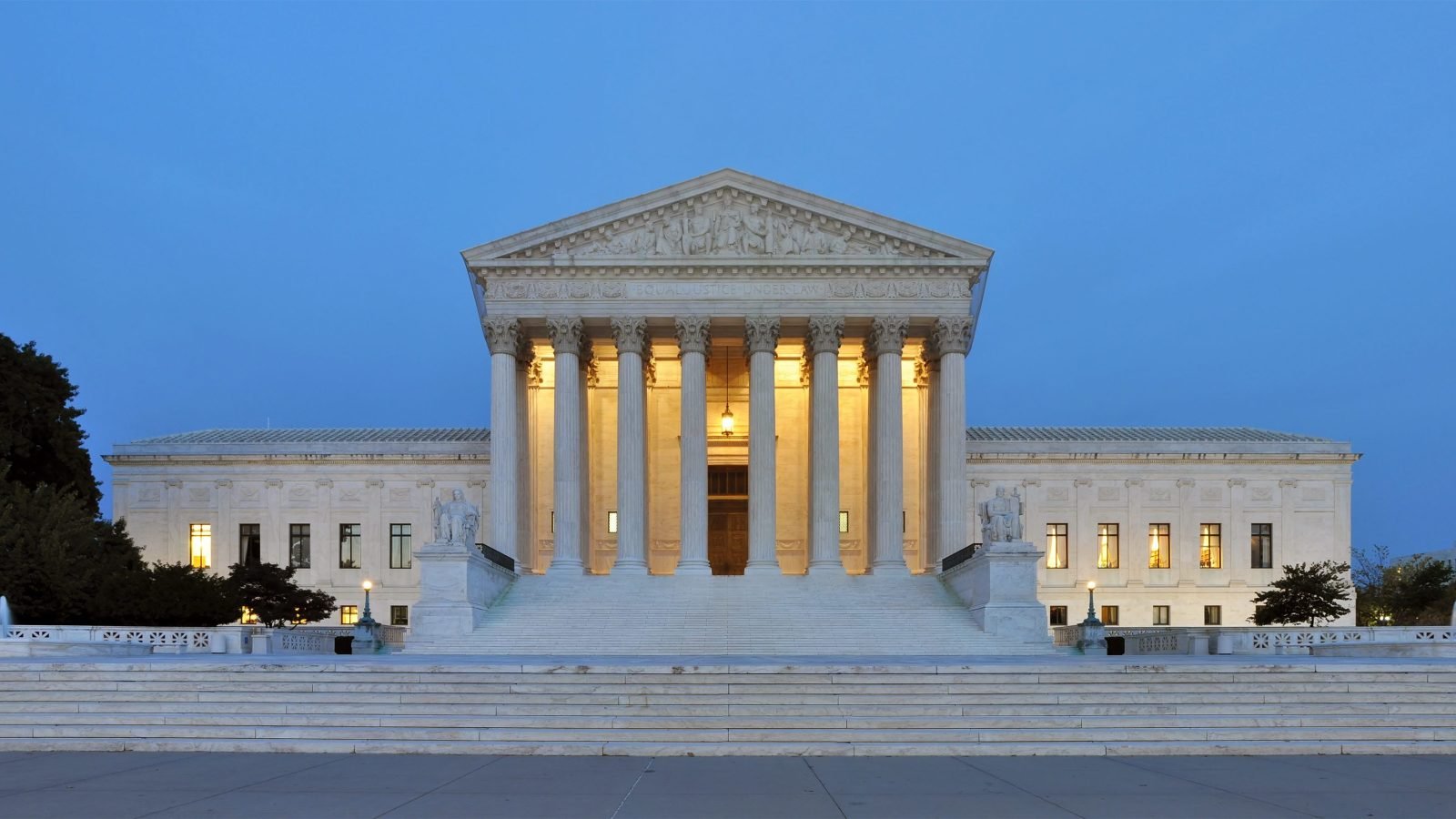The Supreme Court has just agreed to consider a red state’s ban on so-called child “sex change procedures.”
Currently, the state of Tennessee bans medical procedures on children that enable minors to “identify with, or live as, a purported identity inconsistent with the minor’s sex.” This includes puberty blockers, hormone treatments, and surgeries.
Tennessee argues, rightfully so, that these harmful “transgender” procedures “carry serious and potentially irreversible side effects, including infertility, diminished bone density, sexual dysfunction, cardiovascular disease, and cancer.”
However, the case United States v. Skrmetti alleges that the state’s ban is unconstitutional. SCOTUS is set to rule on this next term, in October.
Whatever their decision, it is expected to set a precedent for other states and our nation at large on medical procedures for so-called “transgender” children.
Take a look:
🚨BREAKING: The Supreme Court agreees to review Tennessee law banning gender-affirming care for minors.
The court is expected to issue a judgement by this time next year..
The Tennessee law, which restricts treatments like hormone therapy and puberty blockers, will remain in… pic.twitter.com/Trg4fo7mvL
— Meta Jane (@MetaJane5) June 24, 2024
🚨BREAKING: SUPREME COURT TAKES ON TRANSGENDER RIGHTS CASE The Supreme Court agrees to hear a case challenging Tennessee's ban on gender-affirming care for minors, including sex change surgeries and cross-sex hormones.
CASE BACKGROUND The ban, enacted in 2022, restricts access… pic.twitter.com/Rgwul7VLV2
— Noparty System (@Noparty1776) June 24, 2024
CBS News reported:
The Supreme Court on Monday said it will consider whether a Tennessee law that bans gender-affirming health care for transgender minors violates the Constitution, setting the stage for a major decision on transgender rights in its next term.
The justices agreed to review a lower court decision upholding Tennessee’s ban, which was appealed by the Justice Department and transgender youth who argue that the laws are outside the bounds of the 14th Amendment.
The case will be argued in the Supreme Court’s next term, which begins in October, with a decision likely by the end of June 2025. The dispute thrusts the Supreme Court into the center of a politically fraught issue that has sparked a wave of legislative action by state lawmakers.
The outcome of the case could have a nationwide impact, since more than 20 states have in recent years enacted laws restricting treatments like puberty-blocking drugs, hormone therapy or surgeries for minors experiencing gender dysphoria.
The Supreme Court has never weighed in directly on the constitutionality of these bans, and the justices intervened in one case involving an Idaho law on an emergency basis. In April, the court agreed to let Idaho officials enforce the state’s ban on gender-affirming medical care for nearly all transgender minors statewide and narrowed the scope of a lower court’s order that blocked the law from taking effect.
Under the Supreme Court’s order, Idaho’s law did not apply to two transgender teenagers who challenged the restrictions.
In a separate case involving a West Virginia law that bans transgender athletes from competing on female sports teams, the Supreme Court declined to allow state officials to enforce the law while legal proceedings continue.
The Daily Caller added:
The Supreme Court agreed Monday to consider Tennessee’s ban on child sex change procedures.
ADVERTISEMENTThe case, United States v. Skrmetti, considers whether a Tennessee law that bans medical procedures intended to enable “minor[s] to identify with, or live as, a purported identity inconsistent with the minor’s sex ” — such as cross-sex hormones, puberty blockers and surgical procedures — violates the 14th Amendment’s Equal Protection Clause. The Department of Justice argued that laws like Tennessee’s are “creating profound uncertainty for transgender adolescents and their families around the Nation—and inflicting particularly acute harms.”
“[T]his Court’s intervention is urgently needed because Tennessee’s law is part of a wave of similar bans preventing transgender adolescents from obtaining medical care that they, their parents, and their doctors have all concluded is necessary,” the Department of Justice (DOJ) argued in its petition to the Supreme Court. “Although such care has been provided to adolescents for decades, in the last three years eighteen other States have adopted categorical bans like Tennessee’s.”
Let’s pray that the Supreme Court makes the right decision to uphold Tennessee’s ban on these irreversible, harmful, straight-up evil procedures on kids — and, that other states follow in Tennessee’s footsteps to keep their children safe.



Join the conversation!
Please share your thoughts about this article below. We value your opinions, and would love to see you add to the discussion!